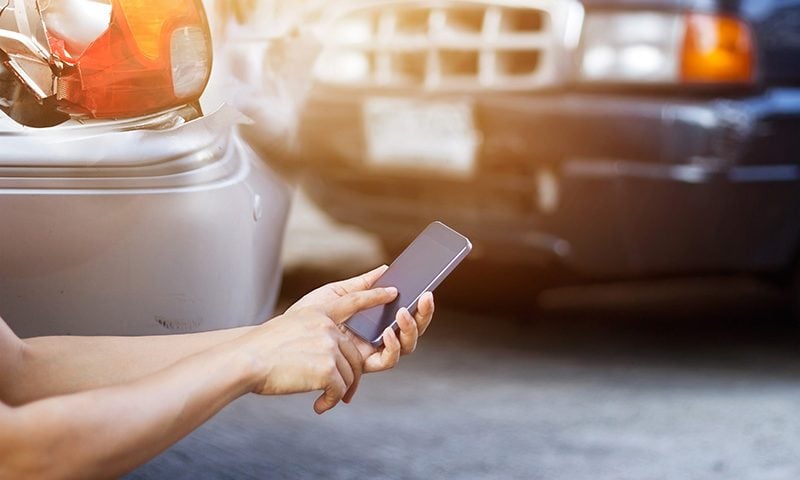What to do if you’re in a road accident abroad

For many, the idea of driving overseas is pretty daunting, while the possibility of being involved in an incident abroad is truly terrifying.
Unfortunately, accidents do happen – so here’s some advice on what to do if the worst happens…
Who you gonna call? 112!
999 doesn’t work in Europe so if you’re wondering who else to call, try 112.
This short number is the European emergency phone number, and if you’re in any EU country, you can call it completely free of charge.
If you’re in an accident, and need to speak to any of the emergency services, call 112 and they will help you out.
All operators will be fluent in English, can pinpoint exactly where you are (just in case you can’t) and can easily put you in touch with the services you need – phew!
Get a report
After any accident, you’ll want to call the police, through either the country’s emergency service number or 112 (we’re really trying to get you to remember that one).
Once the police have arrived, always ask for your own copy of their report.
Language barriers can be frustrating at the best of times, and there’s nothing worse than not understanding what’s going on (or desperately trying to translate) after an accident.
The police report will cover all the key information about the accident, and having a copy of it will help you a great deal when it comes to making a claim.
In the EU, you could also receive a European Accident Statement, which does the job as well. To be safe, take plenty of your own pictures and notes at the accident scene as well.
Who you gonna call next? Your insurer!
Next, it’s time for yet another phone call… this time to call your insurer (1ST CENTRAL).
Much like if you were involved in a road accident here in the UK, you need to get in touch with your vehicle insurer as soon as possible, and give them as much information about the accident as you can.
The quicker you get in touch, the quicker they can help you out. Don’t delay, because if you take too long to get in touch after an accident, you can lose your right to be covered.
If you’re travelling outside of the EU, you should get in touch with us before you travel in case you need to upgrade your cover, and also if you’re going to be away for more than 21 days. We wouldn’t want you driving without the right cover.
Fingers crossed you’ll never need this advice, but at least you now know the basics.


